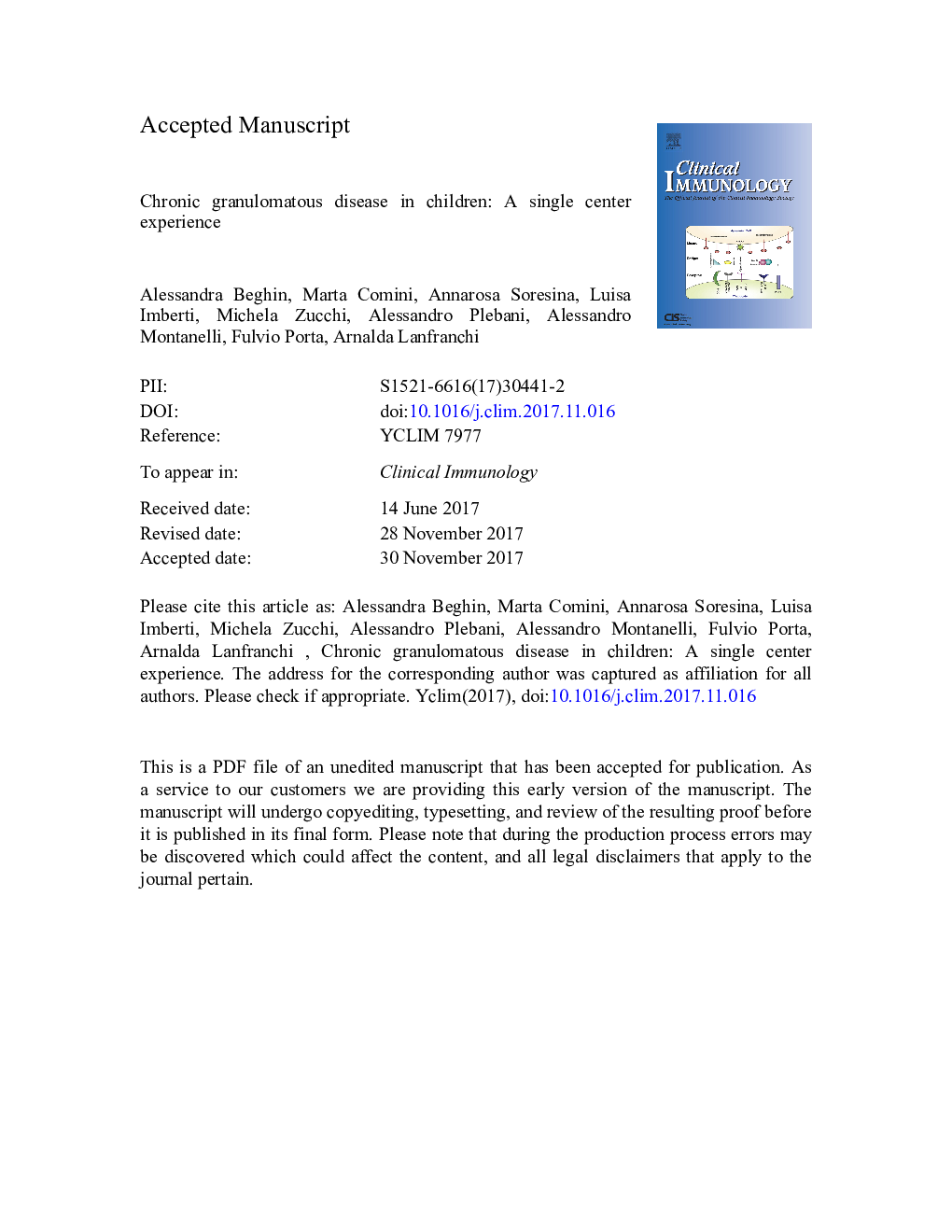| Article ID | Journal | Published Year | Pages | File Type |
|---|---|---|---|---|
| 8721360 | Clinical Immunology | 2018 | 29 Pages |
Abstract
Chronic Granulomatous Disease (CGD) is caused by the failure of the phagocytes to kill pathogens. We carried out a retrospective analysis of cellular, molecular and clinical features of 14 young patients (mean age at the onset of symptoms and diagnosis: 10 and 25Â months, respectively), 7 with autosomal recessive and 7 X-linked form, referred to the Children's Hospital of Brescia between 1999 and 2016. Two new mutations were found, one localized in the CYBB and one in the NCF1 genes. Twelve patients were followed in our institution; the average length of their follow-up after diagnosis was 66Â months in X-linked patients and 126Â months in autosomal recessive inheritance. The overall survival was 67%, 40% in X-linked and 86% in autosomal recessive form. Eight patients were treated with HSCT. We did not find a clear correlation between the clinical symptoms and the type of mutation, but the fine characterization of the patients was mandatory for therapeutic option, genetic counseling and prenatal diagnosis.
Related Topics
Life Sciences
Immunology and Microbiology
Immunology
Authors
Alessandra Beghin, Marta Comini, Annarosa Soresina, Luisa Imberti, Michela Zucchi, Alessandro Plebani, Alessandro Montanelli, Fulvio Porta, Arnalda Lanfranchi,
